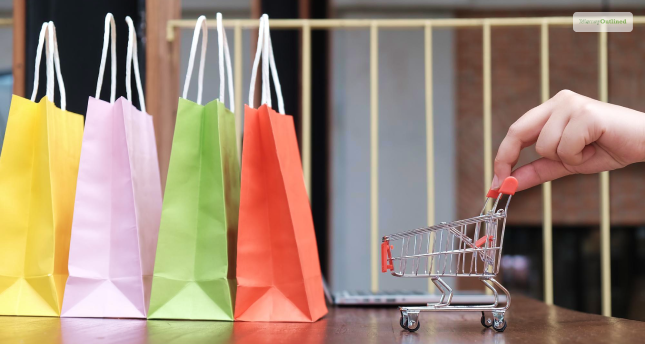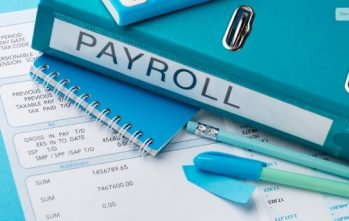Table Of Contents
- What Is Impulse Buying?
- Impulse Buyer: The Psychology Behind Impulse Buying
- Emotional Appeal
- Immediate Gratification
- Social Influence
- Utilitarian Motivations
- Feeling Of Getting A Great Deal
- Anchoring Effect
- Personalization
- Cognitive Biases
- Environment
- How To Stop An Impulse Buyer From Impulsive Buying?
- Make A Budget And Stick To It
- Allow Yourself The Permission To Spend
- Wait For A Couple Of Days Before You Make A Purchase
- Shop With A Plan In Your Mind
- Beware Of Joining Way Too Many Email Lists
- Do Not Shop When You Are Emotional
- Bring Someone With You While Shopping
- The Bottom Line
- What Is Impulse Buying?
- Impulse Buyer: The Psychology Behind Impulse Buying
- Emotional Appeal
- Immediate Gratification
- Social Influence
- Utilitarian Motivations
- Feeling Of Getting A Great Deal
- Anchoring Effect
- Personalization
- Cognitive Biases
- Environment
- How To Stop An Impulse Buyer From Impulsive Buying?
- Make A Budget And Stick To It
- Allow Yourself The Permission To Spend
- Wait For A Couple Of Days Before You Make A Purchase
- Shop With A Plan In Your Mind
- Beware Of Joining Way Too Many Email Lists
- Do Not Shop When You Are Emotional
- Bring Someone With You While Shopping
- The Bottom Line
Are You An Impulse Buyer? – Major Reasons Why You Do Impulse Buying
Trust me, we all have been guilty of it. There are hardly a few people who can claim that they are not an impulse buyer. I mean, is there anything more satisfying than getting to buy whatever you like whenever you like?
Nothing at all matches this feeling.
You know, just walking the streets and seeing something you absolutely do not need on sale. You feel like the item you are pulling you towards it. And the moment you finally purchase the thing and bring it home. That is the best feeling in the world. Isn?t it?
However, would you believe me if I say that there are actually reasons why you have this constant urge to buy things impulsively?
Well, yes. There is a lot of logic that goes behind impulsive buying, and if you are an impulsive buyer, this is just the right article for you. So, stick with me till the end and see why we have a tendency to impulsively buy anything that attracts our eyes.
What Is Impulse Buying?

An impulse buy differs from a regular buy in one major way: they are not planned consciously. Compulsive buying takes place on the spur of the moment. It is difficult to control. And your emotional status has a major effect on your habit of impulse buying.
For instance, there are a lot of us who feel entitled to buy something when we are not in such a good mood. An impulse buyer gets validation from impulsive purchases, which in turn elevates their emotions as a whole.
Impulse Buyer: The Psychology Behind Impulse Buying

If you thought that there was no psychological reason behind your habit of impulse buying, you are certainly wrong. In fact, this entire process is fuelled by psychological reasons. In the consumerist world of today, it has become extremely difficult to purchase something unplanned. Despite having our best intentions, it is difficult to fight the urge to spend on things that we necessarily do not need.
As an impulsive buyer myself, I questioned myself too many times as to what drives the habit of impulse buying. As it turns out, the brain likes to make fast and sometimes irrational decisions whenever it comes to shopping. In fact, there are nine psychological reasons that aptly explain the entire concept behind impulse buying.
Emotional Appeal
It is pretty difficult to keep your mind straight when you are under extreme pressure or stress. This may result from an all-nighter, extreme stress at work, or just any other reason.
When you are under stress, anxiety, or fatigue, the analytical prefrontal cortex becomes extremely strained. It is the one that is responsible for rational thinking and proper decision-making.
Instead, it is the emotions that become more dominating. It commandeers the whole via the limbic system, or the portion of the brain that is responsible for all the emotional responses. This is how you are mainly led to make all the purchases that offer an emotional value and just make us happy.
Immediate Gratification
Shopping offers a pretty quick fix of the much required dopamine when you are going through anxiety and stress. Randomly purchasing things may give you a momentary burst of immediate gratification. However, that does not stay for long.
Definitely, some of the purchases may offer a more enduring sense of happiness, like the ones that have pleasurable and repeated experiences like a book or maybe a bike.
However, for most of the products, the euphoria you feel may just vanish pretty fast. This is mainly true for your impulse-buying tendencies. It is mainly because you do end up not even touching those purchases, and most of the time, you do not even need them.
Social Influence
While we may think that our purchasing choices are completely our own, it may not be that true. Peer pressure can quite be a driver of an impulse buyer. As per the reports of multiple universities, the presence of a fellow shopper may increase the likeliness of you to impulsively buy something. They say it strengthens the bond between two shopping partners.
A recent study has highlighted that?
?family members, particularly parents and children, wield a more substantial impact in driving impulsive purchases than significant others, close friends, or partners.
Gender also plays a role in how social influence affects shopping behavior, with women being more susceptible to the influence of their children and close friends, while men tend to be swayed by their parents and colleagues.?
Utilitarian Motivations
If you see yourself making a very snap decision to buy a functional or practical item, like batteries or toilet paper, which you had no plans to buy, it was certainly driven by utilitarian motivation.
Unlike the other trigger types associating with negative or positive emotions, utilitarian motivation is generally emotionally neutral. As per the reports of a recent study, hand sanitizer, cleaning supplies, and toilet paper were the most general impulse purchases that Americans made during the pandemic season. This reflected a focus on functionality and practicality during the time of a crisis.
Feeling Of Getting A Great Deal
I cannot count the number of times I have been fooled into spending money unnecessarily on an item just because the store offered a great deal on it. This is way more common than you may think. Impulsive purchases don?t always mean that you are spending a bulk load of money on luxurious items. There are times when people just end up buying things because they feel it will allow them to save money in the long run.
As per a survey by Slickdeals, ?45% of the respondents stated that they would only avail of products that are already discounted.??Sales promotions largely impact the buying behavior of the customers. Customers, regardless of the market, are price-conscious. They will always lean towards the products that will provide them with better savings.
Anchoring Effect
Anchoring effect refers to people?s tendency to depend too much on the vert initial piece of information that they get while making a decision. This may lead to impulse purchasing decisions when people are offered an initial price or offer that appears attractive, even when it might not be the best deal ever.
Personalization
Personalization is now an important factor that drives an impulse buyer. This is mainly because tailored experiences have become the ultimate norm. Feeling that an item is particularly made for them develops an emotional attachment, which leads to spontaneous purchasing decisions, mainly when it is tailored to their unique preferences and needs.
Cognitive Biases
Cognitive biases are more like shortcuts that our brains take to allow us to make sense of everything around us and reach the buying decisions pretty quickly. Shoppers who are driven by confirmation bias generally seek out information that confirms their desire to buy a product. For example, studies show that more than half of the consumers go through a number of reviews before they make a single purchase.
Environment
People are most like to make impulse buying decisions when they shop are present in a shopping environment that which is specifically designed to encourage impulse purchases. The use of bright colors, tempting offers, and appealing displays are what generally make people take impulse buying decisions.
However, the impulse tendencies of consumers are not influenced solely by the ambiance. Rather, the features of the product itself, its familiarity, and the loyalty with the brand also plays a major role in shaping the purchasing experience.
How To Stop An Impulse Buyer From Impulsive Buying?

This is one of the most difficult questions ever. As an impulsive buyer myself, the process is definitely not easy. There are a number of hurdles that one has to go through in order to control their habit of impulsive buying.
If you are sick and tired of spending money in an unplanned way, here are some of the ways that you may follow to get started as soon as possible.
Make A Budget And Stick To It
Financial discipline is the most important when you are planning on saving money as much as you can. The key to financial discipline is a budget. There is nothing stronger than a budget that will help you stick to the plan and not divert for one bit.
Yes, it is going to be tough. And there are going to be times when you would feel like throwing it away for good, but trust the process. Making the budget is not that hard, the real catch is sticking to it. Once you get the habit of sticking to a budget, there is no going back.
Allow Yourself The Permission To Spend
While I may have just suggested you to make a budget and stick to it, it is also important to spoil yourself a bit. Based on your budget, you can give yourself a monthly allowance to spend on all those things you love. This way, you will always stay in line and would know how much you need to spend and how. So, the next time you walk through the mall and something catches your eyes, you would have to rely on your monthly allowance instead of just swiping your credit card at every chance you get.
Wait For A Couple Of Days Before You Make A Purchase
It will surprise you how most of the impulse buying decisions take place in the bed and on your smartphone. I mean, isn?t it so easy? Lying in the warmth of our bed, liking something and click, buy it.
This needs to stop.
When you randomly see something and feel like buying it, keep the phone away. Get up from the bed and freshen up. And then think: do you really need the product? When you think about it in a calm mind, it helps you realize if you actually need the product or if it is just another impulsive decision that you are going to make.
This is the ultimate ?no-nonsense? way to judge the purchase and save yourself from a lot of financial stress in the future.
Shop With A Plan In Your Mind
Planning what items you need and how much to spend is one of the best ways to control impulsive buying. With a plan in place, you are going to be less likely to overspend. Your shopping list may vary from grocery items to stationarities; you just need to know what all you want to buy before you step inside the store.
Beware Of Joining Way Too Many Email Lists
Is your inbox flooding with sales messages, too? I mean, can you imagine sticking to the plan pretty well, but then you open your inbox, and there we are ? fifty different emails announcing different deals one after the other?
I mean, you may not have been thinking about shopping, but then, these emails just grab your attention, and you just got to check those deals, don?t you? In this case, a small unsubscribe would not really hurt anyone.
Do Not Shop When You Are Emotional
I have said this before, and I will say it again. Please refrain from roaming around the shopping apps when you are emotional. If you do not feel good, just go for a walk in the park. Target is not a place for you to take a walk.
The moment you step inside a store, you would want that momentary feeling of joy that you were lacking. Even when you are having a great day, stay away from the stores. You may also end up buying unnecessary things due to the rush of adrenaline in your body. In simple words, if you are feeling anything more than usual, stay away from stores.
Bring Someone With You While Shopping
I bring my mom every time I am out shopping. Trust me, even budgets take the back seat when mothers take the wheel. You may bring anyone with you who can have a control on your impulsiveness.
The Bottom Line
Being an impulse buyer is not easy. It may get extremely difficult for you to control your urge to spend. And yet, there is no way you can control yourself. This may just result in a terrible financial crisis at the end of the month.
While there are psychological reasons behind it, they can be controlled. If it the mind that makes you spend money unnecessarily, you can have a control on your mind too. However, that is not easy. It takes a toll on you to control the urge to buy everything you like. But once you have that control over your spending habits.
Continue Reading:











Leave A Comment